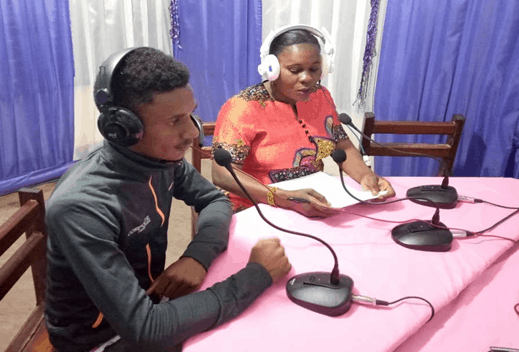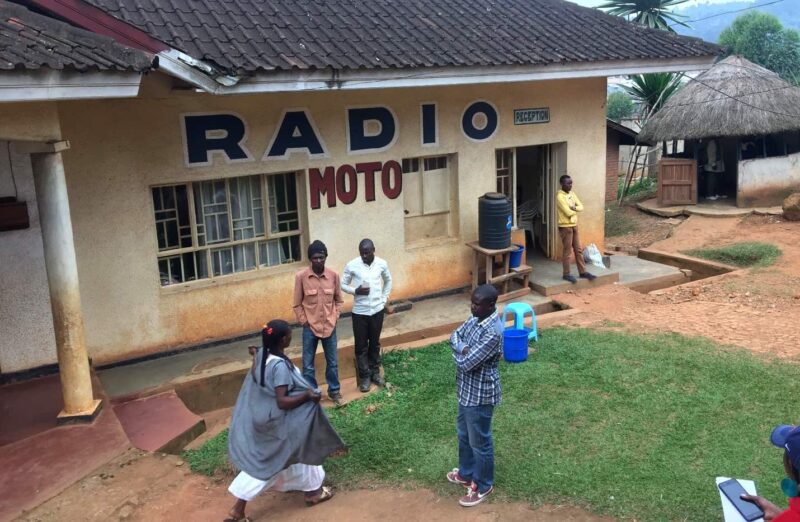On February 7, 2021, the Ministry of Health in the Democratic Republic of Congo (DRC) announced a new case of Ebola in Butembo, Eastern DRC – signaling the 12th outbreak in the country’s history.
The case was recorded in a city that was at the epicenter of the last Ebola outbreak (2018 – 2020) that caused over 3,000 cases and more than 2,000 deaths making it the second largest outbreak in the world. A little over six months from the end of that outbreak, the most recent case has occurred amidst a raging coronavirus pandemic that has stretched local health services and resources.
Local radio stations – many supported by Internews in the last Ebola outbreak – stepped up quickly, now acting on their own.

Hours after the confirmation of the new case, radio stations in Butembo and nearby Beni, started broadcasting public service announcements that were developed in the last Ebola response. Some reactivated their local Ebola radio programs.
Radio Soleil adapted its new health program King Afya (Swahili for “Let’s Preserve Good Health”) to respond to the outbreak. The program takes its inspiration from Internews’ KomaEbola, a radio program on Ebola that was listened to by 68.8% of respondents in North Kivu in a survey conducted in December 2020. Learn more about the impact of KomaEbola.
Another station in Butembo, Radio Salama, “is able to take its own initiatives by producing magazines and spots that are edited at the radio and broadcast to audiences,” said Kavira Syntiche, a journalist at the station and Communications Officer of the Collective of Women Journalists in Butembo.
At the beginning of the year, Radio Salama had developed listening clubs to engage with community members and place their concerns are at the center of the health emergency response.
“We have 10 listening clubs at the moment,” said Syntiche. “We go there to produce educational programs with the population, programs that focus on COVID-19 and sexual violence. We integrated the issue of the fight against Ebola from the moment the disease reappeared. We record the listening club sessions, and these are included in our radio programs for broadcast.”
Listening clubs include citizens who regularly follow radio programs in their community and then share their views and those of the community on the issues covered in the program. This helps the radio station staff understand and respond to citizens’ concerns.
One women member from a listening club in Butemo expressed concern that more needs to be done. “Awareness is still low if we compare the tenth epidemic with the twelfth,” she said. “Journalists have to know that they are like doctors. First save lives.”
In a bid to streamline the local Ebola response, the Network of Community Radio Stations in North Kivu (CORACON, which Internews worked with in the last Ebola outbreak, engaged its members in radio content development and coordination.
While acknowledging that DRC’s local media is still economically fragile, CORACON’s Director, Jack Vagheni, said that building the capacity of local media prior to the outbreak has enabled journalists to quickly develop quality programs to inform the population and helped them address rumors that can complicate the response efforts.
Internews’ work in DRC on health communication was funded by USAID through the Bureau of Humanitarian Assistance.
